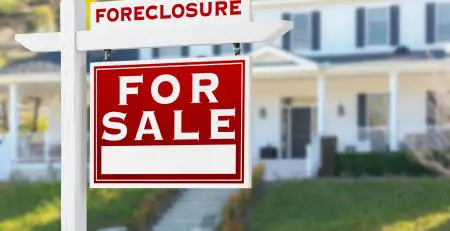It can be a hassle to pay off a mortgage even though it shouldn’t be. You can make this a simple and easy process by properly managing your mortgage payments. We can show you how throughout this article, but it will still be up to you to commit to following these tips to see a change in your mortgage management!
Ways to Manage Your Mortgage Better
You can follow many different techniques to manage your mortgage better with the least amount of losses possible. When someone mentions a mortgage, they mean a home loan that is used to own a property. It can also go towards funding the maintenance costs for a piece of land or real estate. The following mortgage management tips can help you:
- Set a Mortgage Budget
- Have a Prepared Emergency Fund
- Make Timely Mortgage Payments
- Pay More Than Needed When You Can
- Avoid Borrowing and Spending More Money on Unneeded Repairs and Home Improvements
- Regularly Check Your Mortgage
- Refinance Your Mortgage
Set a Mortgage Budget
You will need to manage your budget as a first step to achieve progress in your financial situation and improve your finances. First, document your monthly income. Afterward, calculate your spending and where it goes. As soon as you figure out the range of your expenses, including luxury goods, try to set an honest budget for yourself! That includes your mortgage repayments. If you find yourself facing a tough financial situation, you want to adjust your budget accordingly. This could mean only spending as little as possible! When you find yourself with a strict budget, cutting out unnecessary expenses can include:
- Streaming services
- Coffee runs
- Subscription boxes
Have a Prepared Emergency Fund
The average individual or even a millionaire should always keep an emergency fund because they are important to have. It will help you on your toughest days as it has many uses. You can easily take care of unexpected situations such as home repairs with an emergency fund. Home repairs may need to be taken care of on the spot, and it may be a problem if you cannot afford them. Because it may need to be fixed immediately, it will get worse the longer you wait. You may also need an emergency fund for paying your mortgage. To give you an example, a time may come when you cannot find ways to pay your mortgage as usual. In this situation, you can use your emergency fund to pay it. Always have in mind to keep three to six months’ worth of your regular expenses as an emergency fund.
Make Timely Mortgage Payments
You will start noticing differences in your credit score when you make timely mortgage payments. Many financial aspects will be determined by your credit score alone. Lenders can tell whether you are a trusty borrower or not depending on many things like your payment history. You can use the Autopay feature to make sure you keep up with your payments. Autopay will ensure you never miss out on a mortgage payment as it automatically withdraws money from your bank account whenever there is a mortgage payment that needs to be made. Just check if your bank account has enough money in advance.
Pay More Than Needed When You Can
If you have the chance to pay more than the amount of the mortgage payment needed, do so if you can. It could be helpful even though it may not always be an option and may be hard to do. There is a high chance that you could lower the number of months or years that you need to pay your mortgage. In addition to that, you could cut down the interest amount over time. Just make sure there are no prepayment penalties for your home loan requirements. You must check with your lender if there are extra repayments needed just to be safe.
Avoid Borrowing and Spending More Money on Unneeded Repairs and Home Improvements
People often borrow more money than needed to buy an item or borrow to buy home items or do renovations which can be a huge mistake. This could eventually lead to having more financial responsibilities than you can deal with as it could limit your money.
Regularly Check Your Mortgage
It is possible that you may forget about your mortgage once you stop regularly checking it. In spite of that, you should try your best to make it a habit to always manage and keep a record of it. You may also need to make sure your payment is processed on a monthly basis. This will ensure you don’t come across any unexpected and unpleasant surprises when it comes to your mortgage.
Refinance Your Mortgage
You might find some different kinds of support through a mortgage refinance. This way, you could eventually decrease the amount of money you spend and save more throughout your mortgage. To give you an example of this situation, let’s say you previously agreed to a variable-interest loan with a 30-year term. You could refinance it into a 15-year loan with a fixed interest rate after seven years when you have 23 years left! This results in a shorter loan term and potentially a more favorable interest rate!
To Sum Up
Managing your mortgage can be a hard thing to do. However, it can be a lot easier than you think! You should be able to follow these simple tips in order to deal with your mortgage in a better, more effective, and most importantly, stress-free way. To achieve this, you will need to:
- Set a Mortgage Budget
- Have a Prepared Emergency Fund
- Make Timely Mortgage Payments
- Pay More Than Needed When You Can
- Avoid Borrowing and Spending More Money on Unneeded Repairs and Home Improvements
- Regularly Check Your Mortgage
- Refinance Your Mortgage
We have provided a number of techniques that can make your mortgage payments a lot less stressful than they otherwise would be! It’s up to you to decide which one you would want to explore more or even use!











